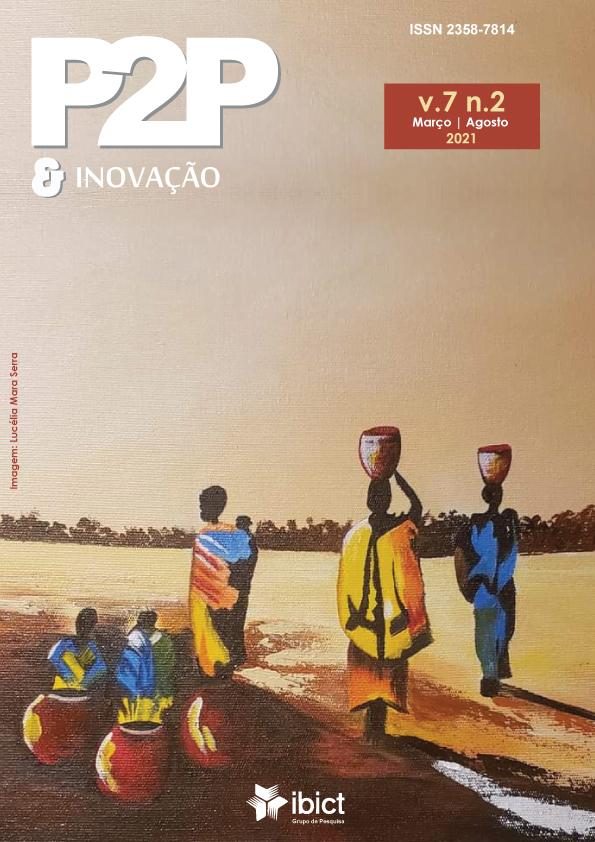Design and implementation of quality control model for developing learning objects in Instituto Federal de Educação, Ciência e Tecnologia do Rio de Janeiro (IFRJ)
DOI:
https://doi.org/10.21721/p2p.2021v7n2.p6-22Keywords:
E-learning, Quality control, Learning object, Standard guide, Videoclass, ICTAbstract
Distance education is a teaching modality in full expansion due to its capillarity and capacity for innovation. However, the design of a distance course requires the wide use of Information and Communication Technologies (ICT) and demands new formats that embrace interactivity. This article contextualizes the production of Learning Objects (LO) in Distance Education (DE) of Federal Institutes. In order to identify quality standards considered in the design of LOs, a qualitative analysis was carried out using documentary and bibliographic research through a bibliometric study, followed by data collection of 36 semi-structured interviews with students, technicians and distance education managers in the federal network. Using the case study and a content analysis technique as a method, the following results were achieved: (a) making a diagnosis about the problem; (b) recommendations for improvements; (c) elaboration of an action plan to implement quality standards for the video classes production to the Virtual Teaching and Learning Environment of the Federal Institute of Science and Technology Education of Rio de Janeiro (IFRJ). In this article, we discuss achieved results.
Downloads
References
BARDIN, L. Análise de conteúdo. Lisboa: Edições 70, 2011.
BRASIL. Decreto n. 9.057, de 25 de maio de 2017. Regulamenta o art. 80 da Lei no 9.394, de 20 de dezembro de 1996, que estabelece as diretrizes e bases da educação nacional. Brasília, DF: Câmara dos Deputados, 2017. Disponível em: https://www2.camara.leg.br/legin/fed/decret/2017/decreto-9057-25-maio-2017-784941-publicacaooriginal-152832-pe.html. Acesso em: 12 mar. 2018.
BRASIL. PEC 22/2019: Proposta de Emenda à Constituição nº 22 de 2019. Altera o Ato das Disposições Constitucionais Transitórias, para fixar o valor mínimo a ser aplicado, anualmente, pelos Estados, pelo Distrito Federal e pelos Municípios, em ações e serviços públicos de saúde e em manutenção e desenvolvimento do ensino. Brasília, DF: Senado Federal, 2019. Disponível em: https://www25.senado.leg.br/web/atividade/materias/-/materia/135851. Acesso em: 12 fev. 2021.
GIL, Antonio Carlos. Como elaborar projetos de pesquisa. 4. ed. São Paulo: Atlas, 2008.
GINNS, P.; ELLIS, R. A. Evaluating the quality of e-learning at the degree level in the student experience of blended learning. British Journal of Educational Technology, London, v. 40, n. 4, p. 652–663, 2009.
GOMES, P. J. P. A evolução do conceito de qualidade: dos bens manufacturados aos serviços de informação. Cadernos BAD, Lisboa, n. 2, 2004. Disponível em: https://www.bad.pt/publicacoes/index.php/cadernos/article/view/826. Acesso em: 15 jul. 2018.
JURAN, J. M.; GRYNA, F. M. Controle da qualidade: handbook. São Paulo: Makron Books, 1993.
KILLEDAR, M. Effectiveness of learning process using “web technology” in the distance learning system. Turkish online journal of distance education, v. 9, n. 4, art. 8, Oct. 2008. Disponível em: https://dergipark.org.tr/en/download/article-file/156305. Acesso em: 03 mar. 2021.
LÉVY, P. A inteligência coletiva: por uma antropologia do ciberespaço. 4. ed. São Paulo: Loyola, 2003.
MILITARU, M.; UNGUREANU, G.; CHENIC, A. S. The prospects of implementing the principles of Total Quality Management (TQM) in education. Procedia – Social and Behavioral Sciences, v. 93, p. 1138-1141, 2013.
OLIVEIRA, O. J. Curso básico de gestão da qualidade. São Paulo: Cengage, 2017.
ROVAI, A. P.; DOWNEY, J. R. Why some distance education programs fail while others succeed in a global environment. Internet and Higher Education, v. 13, n. 3, p. 141-147, June 2010. Disponível em: https://www.learntechlib.org/p/108384/. Acesso em: 20 maio 2019.
SANTOS, E. Mídias e tecnologias na educação presencial e a distância. Rio de Janeiro: LTC, 2016.
WILEY, D. A. Learning object design and sequencing theory. Unpublished doctoral dissertation, Brigham Young University. 2000. Disponível em http://www.reusability.org/read/chapters/wiley.doc. Acesso em 25 fev. 2021.
Downloads
Published
Issue
Section
License
The journal is published under the Creative Commons - Attribution - Noncommercial - Share Alike 3.0 Brazil.
The published work is considered collaboration and therefore the author will not receive any remuneration for this as well as anything will be charged in exchange for publication.
All texts are responsibility of the authors.
It’s allowed partial or total reproduction of the texts of the magazine since the source is cited.














